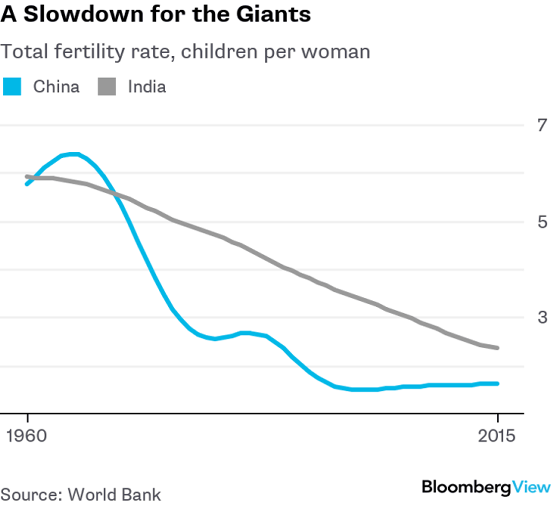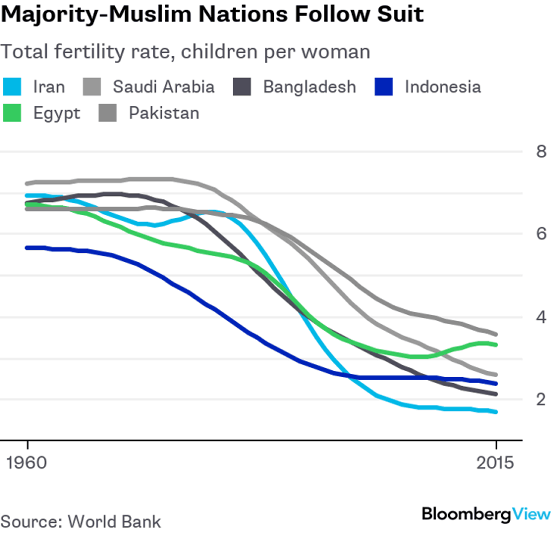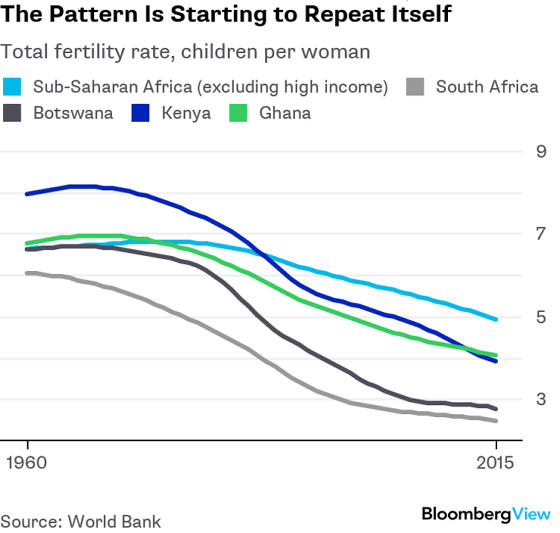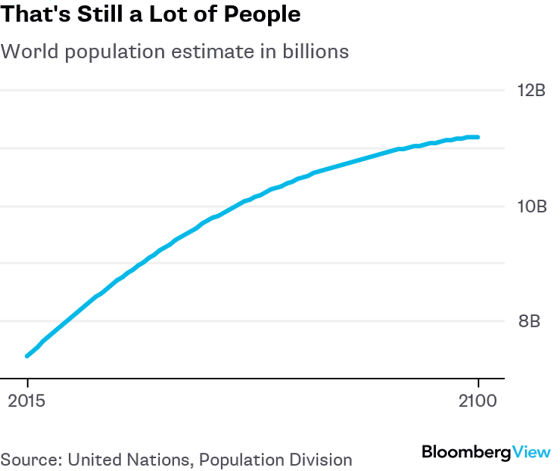The possibility of food crisis due to population explosion is decreasing

byGabby Orcutt
In the past many allegations have been made that "Mankind is entering the food crisis due to population increase", but since the birthrate has turned to a decreasing trend on a global scale, this possibility is very high as of 2018 He is an Associate Professor of Finance at the State University of New York at Stony BrookNoah SmithHe says.
The Population Bomb Has Been Defused
https://www.bloomberg.com/amp/view/articles/2018-03-16/decline-in-world-fertility-rates-lowers-risks-of-mass-starvation
The possibility of "a population growing too large and a large food crisis will come" is already a British economist in the late 1700sThomas MalthusI was pointing out. After that, in 1968Paul EhrlichIn the 1970s, it was forecasted that hunger would come due to the population explosion, but as the population increased, the supply has caught up with advances in technology, so worldwide hunger has not occurred until 2018 Hmm.
Until now we have avoided the crisis with the power of technology, but technology does not necessarily win, there is the possibility of getting into a food crisis even of having technology, of course. However, Mr. Smith gives another view that adding that element of "decreasing the birthrate" will make that possibility very low.
In the era of Malthus and Erich, women gave birth to five children on average, and they tended to constitute a large family. However, just after Erich's book, that trend will change. The birthrate fell.

One woman is the average of the number of children born between the ages of 15 and 49Total special fertility rateThe value of 2.1 or less means that "the overall population will eventually decline steadily". The birthrate transition has occurred in many countries, the birthrate which was 6 to 7 in the past has been less than 2, and the standardized "small family" rarely returns to the big family again.
There are various theories about why such a change has occurred, people have moved from farmland to the city, manpower necessary for agricultural work became unnecessary, child rearing in urban areas has money because it costs money The idea that the number has decreased, and the fact that women have become free from the idea of traditional gender is considered as one factor. But what we can say in common with these elements is that it is not a "short-term change".
Transition of birthrate in India and China has a particularly important meaning.

On the other hand, despite the global concern of population explosion decreasing, the possibility of a population explosion occurring in the region remains. If a large family continues to increase in a certain area, the area will overwhelm the area where the population increase is limited and eventually the birthrate will rise again worldwide again. In particular, it is concerned that such a situation may occur in a country that has customs with many children culturally.
Decades ago, it was thought that "the population will not decrease in the Islamic region where the gender role is emphasized traditionally", but in recent years Iran, Saudi Arabia, Bangladesh, Indonesia etc. The transition of the birthrate has already been completed, and it is indeed the case in Egypt and Pakistan. These data are those of the World Bank, but the total special fertility rate of the World Bank tends to cause errors, whichever is higher,According to CIA's surveyThe number in Pakinstan is said to be less than 2.62.

In Sub - Saharan Africa, one woman has 5 children born and is a rare "area where there is no change to a small family" even on the earth. However, even in this sub-Saharan Africa, the birthrate tends to decline.

Nigeria, Ethiopia, Tanzania and the Democratic Republic of Congo boast high fertility rates, but if the birthrate of these countries declines, the transition to the global "small family" will be completed. In Africa, the income and the birthrate are deeply involved, and if the annual GDP per capita exceeds 5000 dollars (about 530,000 yen), the birthrate will not rise. Countries in Africa are growing rapidly and are expected to reach the above GDP level within several decades. In the United States, the birth rate, which was 6 per person per capita, took three years to decline to 3 people, 24 years in Botswana, 20 years in Bangladesh, and 10 years in Iran, but Africa fell much faster than in the USA Mr. Smith said.
Of course, the declining birthrate will not immediately eliminate the possibility of a population explosion. Even after young people do not have many children, population growth should continue due to the phenomenon "population momentum" for a while. The United Nations believes that the world population of 7.6 billion will expand to over 11 billion by the end of the 21st century. However, it seems that Mr. Smith thinks that the global population will eventually head toward stability and decline.

Related Posts:
in Note, Posted by darkhorse_log







